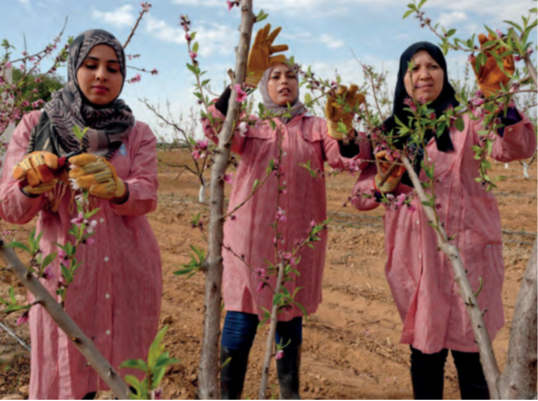Webinar 28th April , 15:00h-16:30h CET

The term ‘Human Rights-Based Approach’ (HRBA) was recognised by Kofi Annan as early as 1997 when he advocated for its implementation across the UN system. This webinar celebrates the first publication that sets out a practical guide for using an HRBA in water and sanitation programmes, incorporating elements of the Human Rights to Water and Sanitation, along with the transversal principles of the HRBA[1].
Adopting an HRBA means incorporating human rights and human rights principles into any and every aspect of a working project. It goes beyond focusing on outcomes and draws attention to the entire process, implementing human rights principles in every step of the project design, planning and operations – by applying this method, the result will have a positive effect in strengthening human rights and contribute to a sustainable outcome.
In this webinar we aim to review the HRBA in practice using a selection of community-based water infrastructure projects, provided by ILO[2]. The common thread in these cases is the meaningful participation of the local community, and the inclusion of women in a technical role. We will explore how these programmes have succeeded to enlist women in roles that are more typically in the male domain and understand the elements of an HRBA that have been integrated into the programme.
The first segment includes female representatives from community programmes in Tunisia, Panama and the Philippines, where the ILO has applied an HRBA in projects to improve operation and maintenance of irrigation, water service provision and water quality monitoring systems. It will be fascinating to hear first-hand about their experiences in community engagement, and what made the programmes successful. The case in Panama also empowered 6000 people from local indigenous communities, bringing focus on the crucial role that indigenous peoples can play in optimising water management in an environmentally sustainable approach, per ILO convention no.169.
The second segment will invite expert speakers from OHCHR and the World Bank, sharing global diagnostics and methods. According to the World Bank[3], the findings of their global study suggest that informal and formal institutions of the WASH sector are underperforming, resulting from information asymmetries and a lack of transparency, which frequently make it difficult for citizens to know what they can reasonably expect and demand from service providers and politicians.
OHCHR produced a globally available checklist last June in response to the pandemic that incorporates a Human Rights-Based Approach to Socio-Economic Country Responses to COVID-19[4]. This provides a pathway designed to help countries tackle the devastating social and economic dimensions of the pandemic, with a focus on at-risk groups[5].
We hope that this event will highlight the importance of embracing the HRBA in all programmes, with a special focus on the benefits to the water and sanitation sector.
In the words of Kofi Annan,
“We will not enjoy security without development, we will not enjoy development without security, and we will not enjoy either without respect for human rights.”
[1] A Human Rights-Based Approach Practical Guide – Human Right 2 Water
[2] Local Resource-Based Approaches in Water Works (ilo.org)
[3] How a human rights based approach to water and sanitation improves institutions for the poor (worldbank.org)
[4] Checklist_HR-Based_Approach_Socio-Economic_Country_Responses_COVID-19.pdf (ohchr.org)
[5] At-risk groups refers to populations experiencing the highest degree of socio-economic marginalization, requiring specific attention.

